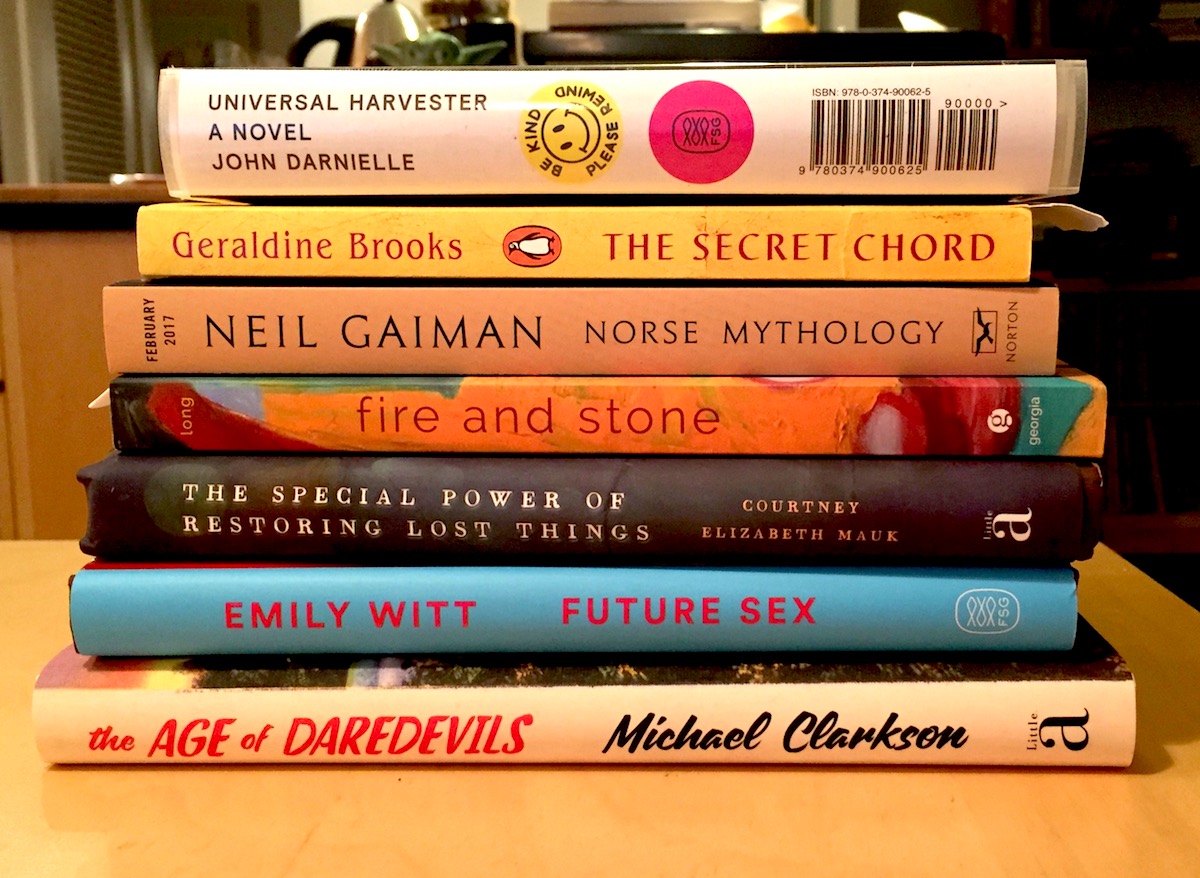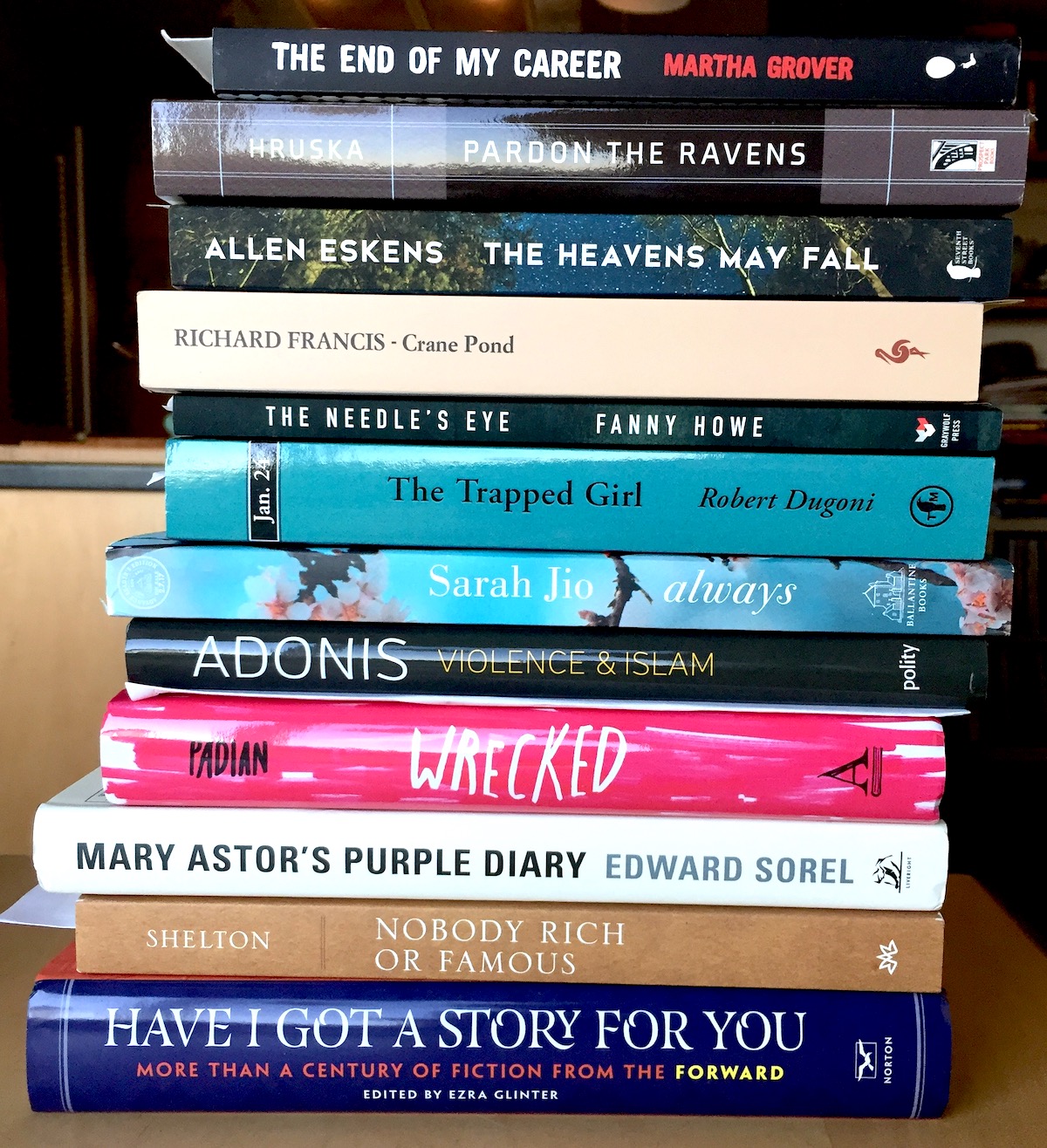You always hurt the ones you love
Published September 27, 2016, at 1:03pm
Maria Semple's followup to Where'd You Go Bernadette is a mean, flawed book about a mean, flawed woman.
Your one-stop shop for depressing library-related news
In Ireland, librarians are protesting plans to fully automate a library. The only paid human staff in the library on a recent test run were on the security team. A library solely staffed by security guards is an incredibly depressing thought.
In other depressing library news: Linda Jacobson at the School Library Journal reports that more librarians are self-censoring their collections these days:
School libraries at all levels are more likely than they were eight years ago to place content labels on books or to have restricted sections for books containing mature content, a data comparison to a 2008 SLJ survey on collection development and self-censorship revealed. The practice of using content labels has increased the most at the elementary level, from 18 to 33 percent. At the middle school level, 27 percent of respondents say they currently use labels, compared to 10 percent in 2008, and in high school, the number has increased from six to 11 percent.
Go hug a librarian today, okay?
All our Tuesday Poems
For over a year now we've been publishing poems by local writers every Tuesday (you can see them all on the archive page). Each poet recommends the next in a chain that has led us through some of the most fascinating corners of the Northwest poetry scene.
We wanted to take one week out of our schedule to look back, in appreciation to the poets who have shared their work with us, and in hopes that you might discover a piece or two that speaks to you that you may have missed the first time.
Next week, we'll be back with the start of our Fall chain, but in the meantime, here's a retrospective.
Our first poet was Kelli Russel Agodon (she also wrote for us about poetry going viral). After her: Kathleen Flenniken, Anastacia Renee Tolbert, Michelle Peñaloza, Arlene Kim, and Don Mee Choi.
EJ Koh was next — we're presenting her, Robert Lashley, and Sherman Alexie at the Elliott Bay Book Company on November 11th, so please save the date. Then: Claudia Castro Luna, Jourdan Imani Keith, Felicia Gonzalez, Emily Bedard, Erin Malone, and Christine Deavel.
We spent the month of December celebrating the life of Madeline DeFrees by running five of her poems: "Matinal", "Phobias Incorporated", "Grandmother Grant", "In the locker room", and "Going Back to the Convent".
We opened 2016 with Sarah Mangold, and Amaranth Borsuk. We did a brave thing, then, breaking our tradition of publishing only women with three short poems by Maged Zaher.
Deborah Woodard rebalanced our gender ratio, followed by Samar Abulhassan, Meredith Clark, Melanie Noel, Jessie Knoles, Ashley E Booth, and Sierra Golden.
We were thrilled to run a lovely piece by an unknown local writer we think has a great future: Sherman Alexie, followed by Jane Wong, Quenton Baker, Alex Gallo-Brown, and Bill Carty.
Kristen Steenbeeke ended April for us, and Rebecca Hoogs led us into May, along with Rachel Kessler (who also did a bang-up job covering all of AWP Los Angeles for us).
JM Miller was next, followed by afrose fatima ahmed, Michael Schmeltzer, Sonya Vatomsky, Meghan McClure, and Rick Barot.
We then turned to Lena Khalaf Tuffaha, Billie Swift, Martha Kreiner, and Laura Da’.
Clare Johnson provided us with poetry illustrated with images on Post-it notes, and following her was Matthew Schnirman, Julene Tripp Weaver, Suzanne E Edison, Paul E Nelson, and John Olson.
Finally, last week, we ended our first cycle with work from Priscilla Long, who has two new books out this month.
So, that's a lot. In these works you'll find humor, beauty, playfulness, anger, sarcasm, frustration, desire, love, bravery, and exhilaration. We couldn't be happier about our Tuesday Poem series, and are so pleased to be able to offer it to you.
Please do spend today browsing them, and we'll see you next Tuesday with new poets and new work.
Mark the date for the Seattle Antiquarian Book Fair
This week's sponsor The Seattle Antiquarian Book Fair is back, for their twenty-ninth annual show at Seattle Center, happening October 8th-9th. The fair is an amazing event, a place to see rare books, ephemera, maps, and collectibles.
Find out more, and see a great video about the fair, on our sponsor's page.
It's thanks to sponsors like The Seattle Antiquarian Book Fair, and readers like you, that we're able to keep the pixels lit up here at the Seattle Review of Books. We've just released our next block of sponsorship opportunities. Check them out on the sponsorship page, and grab your date before they're gone.
Out of the running
Published September 26, 2016, at 12:01pm
Over a thousand Americans ran for president in 2016. Craig Tomashoff's book highlights 15 of the most obscure would-be POTUSes.
Human fiction-factory James Patterson has announced that his November title, a mystery titled The Murder of Stephen King, has been canceled. Jackson McHenry at Vulture writes that Patterson announced the cancellation "after deciding that he did not want to cause King and his family 'any discomfort' given that fans have reportedly 'disrupted the King household in the past.'"
It's true; considering that King has had several stalkers through the years, Patterson's novel, in which a would-be murderer combines the techniques and characteristics of various King antagonists, seems in exceptionally poor taste. I first heard of this book last month, and I naturally assumed that Patterson had gotten permission from King before writing it. That certainly seems like it would have been a wise thing to do.
You can travel to the other side of the world, but you'll never find another bookstore like Lion Heart
Well-versed in the contents of his shop and the world of books, a recommendation from David is a valuable gift. He went straight from high school to bookselling and has held his current position as caretaker of Lion Heart Book Store for 15 years. In a half-serious, half-joking tone (leaving the facts amusingly uncertain), he explained that his father offered him three choices after high school: he’d send him to vet school, send him to prison, or help him start a bookstore.
Luckily for us the third option won, and now you have a list of recommendations for autumn and an excuse not to leave home. David recommends: The Boys in the Boat by Daniel James Brown, We by Yevgeny Zamyatin, Dharma Bums by Jack Kerouac, and The Bean Trees by Barbara Kingsolver. His favorite book is Candide, which, like his own life, he says, deals with finding love, disappointing young ladies, and searching for the philosophy of life.
Although Pike Place houses several amazing bookstores, Lion Heart is the crown jewel. Cared for by an involved owner and standing at the heart of the market, it pumps energy through the several crowded floors and lengthy hallways of Pike Place. Visited by locals and tourists alike, by literary aficionados and surface browsers, the shop lives in the best of all possible worlds, acting as a trading post for stories both verbal and written.
4,800 miles away, my new home in London boasts an incredible literary scene. There are several bookstores in my neighborhood and countless more in Central London. They are historic, quaint, and some even famous, yet none compare to the underground nook by Puget Sound. No owner leaps from their desk to help (elderly British booksellers can’t be bothered), no customer rambles about their life, and no one sends postcards from their travels the way people do for David. The only thing I’ve found to be on par with Lion Heart Book Store is the talk of the weather and the rustle of raincoats as people shuffle past each other in the I-want-to-look-at-the-shelf-you’re-in-front-of dance.
I walked a few miles through Central London, stopping by several bookstores — most of them on Charing Cross Road — to get my books for this semester, a Harry Potter-esque experience of walking through cobblestone alleys with bags full of school supplies (sans owl, sadly). These tiny old bookstores are majestic and breathtaking, usually full of beautiful Jane Austen editions and Shakespeare compilations. But there’s the key difference: London bookstores pride themselves in their content, while Lion Heart Book Store sees the importance of the people that visit.
London bookstores are city fixtures, impassive to the comings-and-goings of tourists, while Lion Heart changes for and with its customers. Although there is a beauty in the static existence of century-old bookstores here, Lion Heart reflects the livelihood of Pike Place Market and the changing scene in Seattle. Already the fifth incarnation of the shop since its establishment in 1961, it’s exciting to see where it will go and how it will continue to interact with the people who visit it.
The Sunday Post for September 25, 2016
What We're Saying When We Talk About Hillary Clinton's "Likability"
Sady Doyle unpacks the gendered responses to the first woman to be a major party candidate.
No, Hillary Clinton is not a flawless person — or politician. You can complain about her secrecy, her hawkishness, or her husband all for good reason. But Clinton is, according to available biographical evidence, normal. Ordinary, even. She’s like countless women of her generation: Caught between the second wave of feminism and the marital norms of a pre-feminist age, driven to prove herself but cautious about seeming “pushy” or radical, aspiring to lead the nation into the 21st century yet baffled by her own fax machine. Her soul contains little poetry, and less mystery. Her flaws exist on an identifiably human scale.
Despite Legacy Of Racism, Black Women Rock On
Latonya Pennington, in The Establishment, on black women playing rock music, and being recognized for it.
Why are the contributions of black musicians like these so rarely acknowledged? In part, it has to do with monolithic stereotyping of black musicians and black music listeners—the association of current black musicians and black music fans in the United States with only hip-hop, R&B, and pop. In her book What Are You Doing Here?: A Black Woman’s Life and Liberation in Heavy Metal, music journalist Laina Dawes states that the monolith stereotype is the result of the whitewashing of rock music, as well as the black community’s need to preserve cultural bonds and appear respectable.
I Used to Be a Human Being
Andrew Sullivan talking to how a steady stream of instant media nearly ruined his health.
If the internet killed you, I used to joke, then I would be the first to find out. Years later, the joke was running thin. In the last year of my blogging life, my health began to give out. Four bronchial infections in 12 months had become progressively harder to kick. Vacations, such as they were, had become mere opportunities for sleep. My dreams were filled with the snippets of code I used each day to update the site. My friendships had atrophied as my time away from the web dwindled. My doctor, dispensing one more course of antibiotics, finally laid it on the line: “Did you really survive HIV to die of the web?”
Can the South Make Room for Reconstruction?
Bill Rauch looks into resistance from certain corners in the South in telling the true story of the Reconstruction, after the Civil War.
The National Park Service has also commissioned a study to explore creating official commemorative sites—and two places that are likely high on the list are Beaufort, South Carolina, and Natchez, Mississippi. That study is currently in its “final review” phase within the agency and is expected to come out in the next few months, probably right after the November elections. Reflecting the most recent historiographical thinking on Reconstruction, the long-awaited study will no doubt also emphasize the controversial era’s role as the essential precursor of the civil-rights movement in the 1960s.
The Responsible Communication Style Guide - Kickstarter Fund Project #38
Every week, the Seattle Review of Books backs a Kickstarter, and writes up why we picked that particular project. Read more about the project here. Suggest a project by writing to kickstarter at this domain, or by using our contact form.
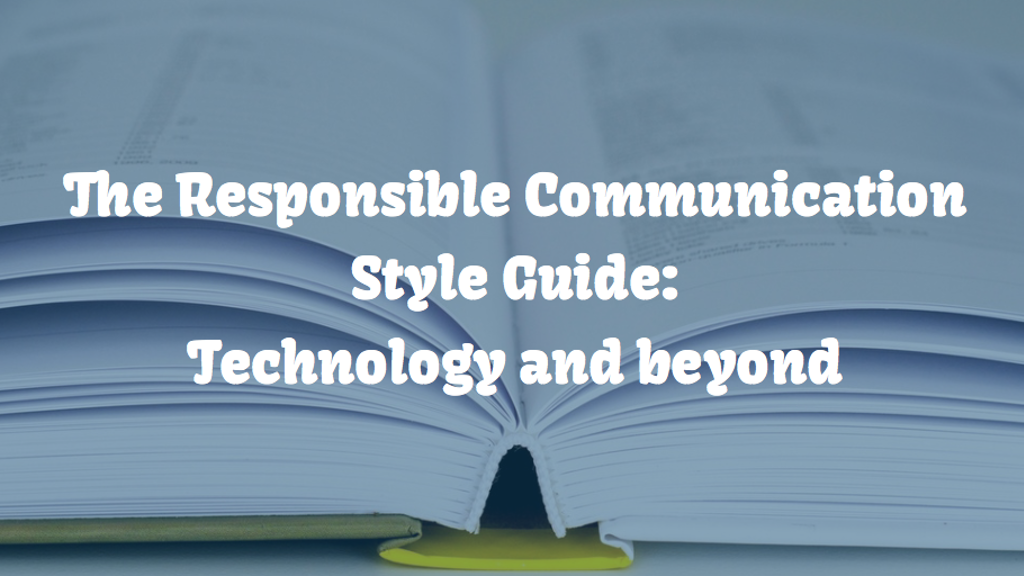
What's the project this week?
The Responsible Communication Style Guide. We've put $20 in as a non-reward backer
Who is the Creator?
What do they have to say about the project?
The Responsible Communication Style Guide is a stylebook for writers and other media creators
What caught your eye?
Recompiler Mag is a feminist hacker magazine, and like many publications, they run into a myriad of style issues. Specifically, they are concerned with proper inclusive language, and the cases where language may exclude or diminish.
So why not write their own style guide? They're focusing on five areas: race, gender, sexuality, religion, and health and well-being. Each aspect of open communication, and how to present topics in ways that don't exclude people, are considered.
Why should I back it?
Style guides are suggestions (unless you're a language absolutist), and reading suggestions about ways you can be more aware in your writing and tone, especially if you're going for a neutral voice, is never a bad thing. Knowing what language may offend or alienate people you've never thought about can make your work reach a larger audience. And, with the exception of certain politicians, writers, and narrow-minded charlatans, limiting your audience is generally a bad idea.
How's the project doing?
Ouch! Only 45% there and five days to go. They need help. If you get behind this project, help spread the word!
Do they have a video?
Kickstarter Fund Stats
- Projects backed: 38
- Funds pledged: $760
- Funds collected: $640
- Unsuccessful pledges: 2
- Fund balance: $280
The Help Desk: Am I stealing from the library?
Every Friday, Cienna Madrid offers solutions to life’s most vexing literary problems. Do you need a book recommendation to send your worst cousin on her birthday? Is it okay to read erotica on public transit? Cienna can help. Send your questions to advice@seattlereviewofbooks.com.
Dear Cienna,
I recently moved from Seattle to a small town in the Midwest, giving up the Seattle Public Library’s massive collection for something much more modest. Now, our library system here is pretty good! I have no real complaints. But every so often, there’s a book I want to read that they don’t have but, lo and behold, SPL has the ebook version. Since I still have a working library card, I can check out ebooks from the SPL with no problem. I’m not paying Seattle taxes anymore, but I can’t seem to resist, well, taking advantage of Seattle taxpayers. How big of a sin am I committing? Should I just rip up my old library card?
Amanda, Midwest
Dear Amanda,
Congratulations. By relocating from Seattle to a small town in the Midwest, you have become a “woman of the world.” There are many perks accompanying your new status: you are likely better at identifying mountains than your Midwestern peers and can more closely relate to the kidnapped survivors of Boko Haram than your Seattle peers, if not spiritually then at least geographically. Savor this feeling.
As for your sin of committing library fraud, to use the analogy of sports I don’t follow, I consider this sin to be golf-ball sized – it would probably choke a baby but a belligerent adult could swallow it just fine with a chaser of Bud Light Lime.
Here’s the good news: The Seattle Public Library does issue library cards to non-Seattle, Washington state residents for a price ($85).
If your moral compass so guides you – did I mention women of the world are also fitted with strong moral compasses? – start making an $85 annual donation to the Seattle Public Library and continue using your fraudulent library card guilt-free. But if you accidentally left your moral compass in a corn field somewhere in Ohio, it’s not the end of the world. Simply befriend a librarian in your new hometown and confess your sin to her or him over happy hour drinks (that you will pay for). Absolution is a tradition in the Catholic church, which is a sport I follow only slightly more than golf because of the drinking involved.
In the meantime, avoid befriending babies and no one gets hurt.
Kisses,
Cienna
As Jennifer Schuessler reported in the New York Times, the MacArthur Foundation announced their annual "Genius" grant winners yesterday. I'm very excited to see that the new list of "Geniuses" includes authors we've written about here at the Seattle Review of Books over the past year.
Willie Fitzgerald wrote a review incorporating Claudia Rankine's compelling poetry collection Citizen last year.
The brilliant Maggie Nelson has been written about a few times here on the site, most notably in Cate McGehee's splendid review of The Argonauts and Jennifer Bernstein's review of, among other books, Nelson's The Art of Cruelty.
I reviewed the first issue of cartoonist Gene Luen Yang's comic book New Super-Man when it was released two months ago.
Congratulations to all the "Geniuses," (Those quotation marks are accurate, according to the MacArthur style guide, but they always feel so sarcastic whenever I write about the MacArthur grants that I always consider leaving them out.) I look forward to publishing many more pieces about their works here on the Seattle Review of Books in years to come.
Portrait Gallery: Clark Humphrey
Each week, Christine Marie Larsen creates a portrait of a new author for us. Have any favorites you’d love to see immortalized? Let us know
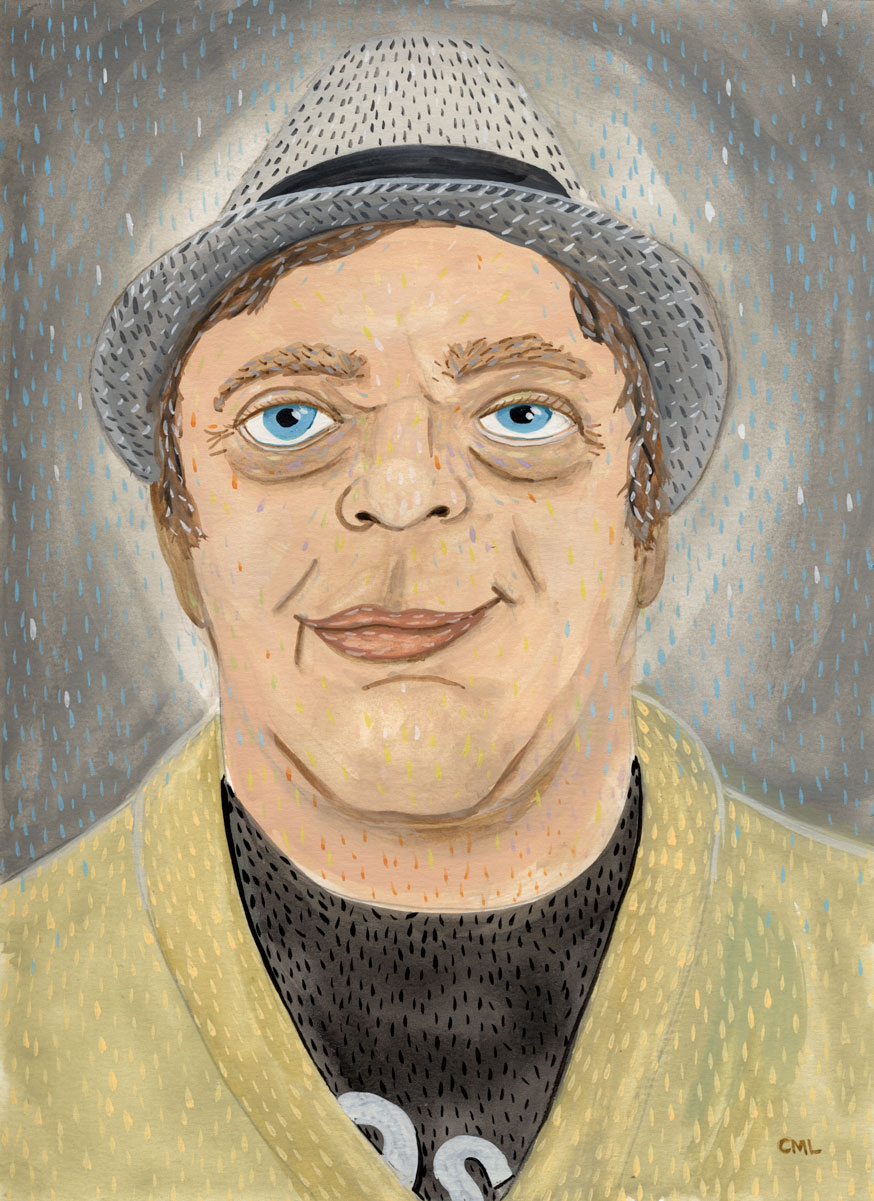
Seattle's perennial ambassador to the micro-cultures of the Pacific Northwest, Clark Humphrey is appearing Sunday at Vermillion Art Gallery and Bar to celebrate the new edition of his encyclopedic work on Seattle's music scene, LOSER: The Real Seattle Music Story.
Criminal Fiction: our inaugural mystery, suspense and thriller column
New column! Every month, Daneet Steffens is going to uncover the latest goings on in mystery, suspense, and crime fiction. Welcome Daneet!
I’m delighted to be kicking off this column for the Seattle Review of Books during a month full of crime-fiction action. Bloody Scotland, Scotland’s International Crime Writing Festival, toasted its fourth year, crowning Christopher Brookmyre with the top McIlvanney Prize, and featuring the traditional England crime writers vs. Scottish crime writers football match (England won, 7-1). Stateside, Bouchercon took over New Orleans, a city made for murder mysteries, police procedurals, and vampiric thrillers: Seattle native Glen Erik Hamilton picked up the Best First Novel, and Mark Billingham, Doug Johnstone, Stuart Neville, and Bill Loehfelm rocked out at the New Orleans House of Blues. And, back in the UK, the third Noirwich weekend in Norwich welcomed a rich range of crime writers including Ian Rankin, Denise Mina, Eva Dolan, Sarah Hilary, Peter James, and Dreda Say Mitchell.
Reading around: new titles on the crime fiction scene
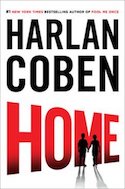

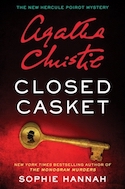
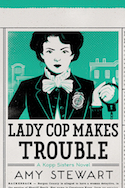
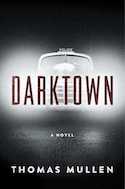
The Quintessential Interview: Chris Holm
In 2015, Chris Holm’s The Killing Kind — which just won the Anthony Award for Best Novel at Bouchercon — introduced Michael Hendricks, a hit man who targets other hit men. Its follow-up, Red Right Hand, finds Hendricks on a bit of a revenge trip when FBI Special Agent Charlie Thompson taps him for assistance: a viral video of a terrorist attack in San Francisco reveals that an FBI witness whom everyone thought was dead is, in fact, very much alive. Red Right Hand is perfectly paced page-turner: Holm elegantly juggles multiple characters, perspectives and locations, without a single misstep.What or who are your top five writing inspirations?
I have a deep and abiding love of classic pulp. I’m fascinated by what drives good people to do bad things. By how bad one can be without becoming irredeemable. By the slipperiness of identity and what we consider to be our essential selves. And I should give a nod to my adopted hometown of Portland, Maine, since I never seriously considered pursuing a writing career until I moved here—and I worry the words will dry up if I ever leave.
Top five places to write?
The left side of my couch. The University of New England’s Westbrook College Campus library. Coffee By Design on Diamond Street. The right side of my couch. On the backs of receipts at stop lights in my car.
Top five favorite writers?
I’m only allowed five?! I just broke out in a cold sweat. Today, let’s say Megan Abbott, Raymond Chandler, Tim Powers, Donna Tartt, and Donald Westlake. Tomorrow, I might cough up a whole new list.
Top five tunes to write to?
My favorites include Benny Goodman Orchestra’s “Sing Sing Sing (With a Swing),” Budos Band’s “The Sticks,” DJ Shadow’s “Organ Donor,” Mono’s “Ashes in the Snow,” and Rodrigo y Gabriela’s “Diablo Rojo.” I have a tough time writing to anything that features words, so all my picks are instrumental. I use them sparingly, whenever I feel as if my writing needs a boost.Top five hometown spots?
The secret garden behind Henry Wadsworth Longfellow’s house on Congress Street. The tasting room at Allagash. The gloomy labyrinth that is Portland Architectural Salvage. Fort Williams Park in Cape Elizabeth. And Halcyon Tattoo in Windham.
Thursday Comics Hangover: Doom, again
Sometimes you just fall in love with an artist’s work at first sight. That was what it was like for me reading the first issue of DC’s new Doom Patrol, which was published last week. I don’t know where Nick Derington comes from, but that two-page spread he drew that opens the issue, with a long, narrow panel of protagonist Casey Brinke driving an ambulance, is this kind of a moment for me. Derington has everything I love in an artist: simple lines, fine details, expressive facial expressions. This is the same kind of feeling that hit me when I first saw Marcos Martin’s art, for instance: pure love.
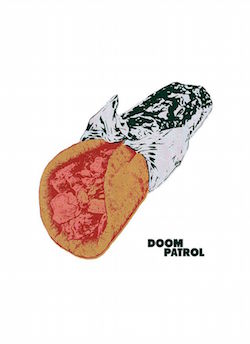
I wish I could say the same for Gerard Way’s script. Way, the rock and roll singer who wowed comics fans with his weird superhero series Umbrella Academy, is launching a new weird adult imprint for DC Comics called Young Animal, of which Doom Patrol is the flagship title. And several of the new characters that Way introduces in the book — Casey Brinke, a singing telegram girl from beyond the stars — are absolutely fascinating. But only part of this book is treading new ground.
In a text piece at the end of the issue, Way talks about his love for Grant Morrison and Richard Case’s Doom Patrol comic from the 1990s. While that Doom Patrol run was absolutely incredible — I recently re-read it and was happy to find that much of it holds up — some of the elements in this new Doom Patrol feel a bit too eager to retrace those steps. The beauty of Morrison’s run on Doom Patrol was that he took an old, unsettling superhero comic and transformed it into something new and unsettling. It was of its time, and it happily discarded elements of the past to build its own identity. If Way is unable to make something new here, his Doom Patrol could wind up being nothing more than a nostalgia act.
Comics is not hurting for nostalgia; in fact, nostalgia is what is holding comics back. And those terrific books that ran during the heyday of Vertigo Comics — Doom Patrol, Animal Man, Sandman — deserve more than nostalgia. The best homage Way could pay to Morrison’s run would be to ignore it, and to head in a different direction entirely.
Feminism a la carte
Published September 21, 2016, at 12:00pm
Two indie feminists come at commerce, advertising, and how to best love media from different angles.
Your Week in Readings: The best literary events from September 21st - September 27th
Wednesday September 21st: A Gentleman in Moscow Reading
See our Event of the Week column for more details. Folio: The Seattle Athenaem, 324 Marion St., 402-4612, http://folioseattle.org. $5. 7 p.m.Thursday September 22nd: A Kingdom of Their Own Reading
Joshua Partlow is a Seattle native who reports on international affairs for the Washington Post. Though he’s currently based out of Mexico City, Partlow did a stint in Afghanistan that culminated in his new book, about how America’s interference in the country is now coming back to haunt us. Elliott Bay Book Company, 1521 10th Ave, 624-6600, http://elliottbaybook.com . Free. All ages. 7 p.m.Friday September 23rd: The Constitution Today Reading
Yale professor Akhil Reed Amar is one of our leading Constitutional scholars—he even advised writers on The West Wing on Constitutional law. His new book discusses some of the most compelling political arguments of our time—from guns to gay marriage—and explains why the Constitution has so successfully grown and changed with this country. Town Hall Seattle, 1119 8th Ave., 652-4255, http://townhallseattle.org. $5. All ages. 7:30 p.m.Saturday September 24th: Vow of Celibacy Reading
Standup comedian Erin Judge’s new coming-of-age novel is about a bisexual aspiring fashion designer with body image issues who takes a vow of celibacy in hopes of figuring out out why her life is such a mess. Judge will be joined by some other comedians, making this less of a reading and more of a mini-standup comedy festival. Elliott Bay Book Company, 1521 10th Ave, 624-6600, elliottbaybook.com . Free. All ages. 7 p.m.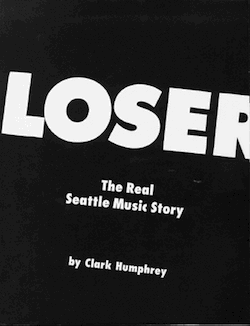
Sunday September 25th: LOSER: The Real Seattle Music Story Reading
Once upon a time, young people were flocking to Seattle to take part in its music scene. Now that young people are flocking to Seattle to take part in its online retailing scene, it’s time for Seattle media veteran Clark Humphrey to reissue his two-decade old encyclopedic guide to the movers and shakers of grunge-era Seattle. Vermillion Art Gallery and Bar, 1508 11th Ave., 709-9797, http://vermillionseattle.com. Free. All ages. 7 p.m.Monday September 26th: Here I Am Reading
A decade ago, Jonathan Safran Foer came to Seattle for a triumphant reading to celebrate his second novel, Extremely Loud and Incredibly Close. Tonight he returns with his third novel, and reviews have been…less than kind. (There’s a scene where a husband makes his wife orgasm by staring at her vagina.) It’s time for some good old-fashioned literary rubbernecking. Town Hall Seattle, 1119 8th Ave., 652-4255, http://townhallseattle.org. $34.89. All ages. 7:30 p.m.Tuesday September 27th: A Voice Without the Words to Speak
This roundtable discussion about the loss of language is an inclusive, participatory discussion. Various experts—children of immigrants whose parents demanded that they speak only English, a Yakima language preservationist, and more—will discuss the importance of keeping language alive for a new generation, and what happens when a language dies.Vermillion Art Gallery and Bar, 1508 11th Ave., 709-9797, http://vermillionseattle.com. Free. All ages. 7 p.m.Literary Event of the Week: Amor Towles at FOLIO

The Count is a wondrous literary creation. He’s dignified and intelligent, but also weirdly displaced and kind of petulant. As a reader, you don’t know whether you should respond with disgust at the fact that he’s so unprepared for the roughness of the real world or with appreciation at the fact that his coping mechanism—pretending that the Revolution merely left him temporarily indisposed—is so marvelously effective. This is a character who is at once plain-faced and complex, the kind of rare protagonist who’ll live in your head for years.
Comparisons between novels and films are often misleading and unfair to both ends of the simile, but I can’t be the only reader for whom the opening pages of Moscow bring Wes Anderson’s Grand Budapest Hotel to mind. Like the film, the book is densely populated with a broad and mildly cartoonish cast of characters, it’s set in a beautiful and sprawling hotel, and it’s enlivened with a broad and gracious variety of wit.
But that comparison between Moscow and Budapest is perhaps a feint masking an even more apt relationship: Anderson himself was very open about his film’s relationship to the works of Stefan Zweig, an Austrian novelist from the early half of the 20th century who went largely unappreciated while he was alive. And in fact Towles’s book is even more worthy of the claim to Zweig’s legacy than Budapest was: both Towles and Zweig write deceptively light prose that enchants a reader, and both writers use their chipper cleverness to disguise a considerable darkness underneath.
Whereas Zweig’s fiction always recoiled from the Nazi occupation that forced him to flee his home in the late 1930s, Moscow follows 30 years of Russian history from the Revolution to the dawning of the Cold War, all from within the walls of the Metropol. Some of the most brutal moments of the 20th century unfurl before the eyes of an inscrutable protagonist who tends toward heroic displays of understatement: “Let us concede that the early thirties in Russia were unkind.” That’s certainly one way to refer to famine, riots, brutality, and the rise of Stalin.
There will undoubtedly be some readers who chafe at the idea of an entire book that witnesses nearly a third of a century’s worth of a nation suffering from a sheltered aristocrat’s perspective. They are perhaps missing the point: in the Count, Towles has created a marvelous stand-in for the resilient human spirit: even in rags and imprisonment, he bears himself with dignity. Even if just in his own mind, he is a Count.
(Amor Towles reads at FOLIO: The Seattle Athenaeum tonight at 7 pm. The reading is $5.)
Book News Roundup: The publishing industry is changing too slowly
Flavorwire reports on a Publishers Weekly report on the publishing industry. The bottom line: "Publishing Makes 'Little Progress' in Diversity, Remains Extremely White." This is not good enough.
And there's more bad news in the PW report, including the fact that women in publishing are still paid less than men. Boo.
This came in too late for me to add to the readings calendar this week, but you should be advised that the Words West reading series will take place tomorrow night at C&P Coffee Company in West Seattle. The very special guests at this reading will be Tod Marshall, Washington State's Poet Laureate, and City Councilmember Lisa Herbold, who will share her favorite poem.This reading will also debut "a new library featuring a book by every author who has read at WordsWest." This is a super-cool idea.
Do you know any teenagers who love making comics? You should direct them to the All City Comics Club, which is hosted by local comics superstar David Lasky and which takes place at the Bureau of Fearless Ideas. Here, have a flier:

